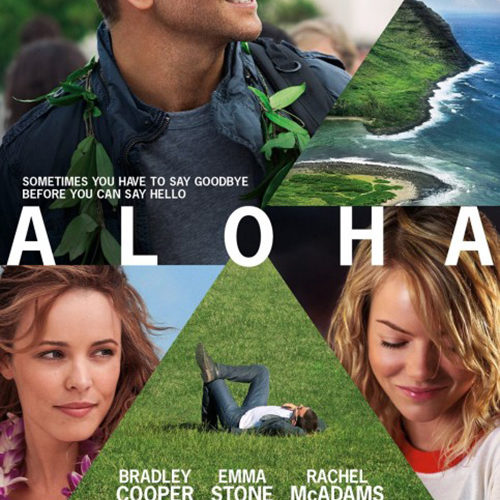Cameron Crowe has made a career telling stories of flawed men who are saved thanks to young, quasi-magical women. His best films have shown the cracks in these maniacal pixies. Consider the crippling self-doubt of Penny Lane in Almost Famous, or the world-weariness of Renee Zellweger’s Dorothy Boyd in Jerry Maguire. Penelope Cruz’s Sofia Serrano in Vanilla Sky quite literally becomes the girl of selfish rich guy Tom Cruise’s dreams, a twist that feels like Crowe commenting on his own tropes.
In Aloha, we have Brian Gilcrest (Bradley Cooper), a wounded and disgraced war vet who returns to his cushy Hawaiian military base working as a private contractor for “the richest billionaire of them all,” Carson Welch (Bill Murray). Waiting for him is a young, quasi-magical woman set to be his military liaison (Emma Stone), an old pal (Danny McBride), a gruff general (Alec Baldwin) and “the one that got away,” played by Rachel McAdams. The plot involves Brian cutting a deal with local Hawaiians to launch one of Welch’s satellites into space, his last best chance at redemption.

Not unlike his recent films Elizabethtown and We Bought A Zoo, Crowe seems to be searching for a story with something interesting to say as opposed to telling a story with something interesting to say. All three films play like Capra-esque fables in which little men with big dreams fall hard, only to rise while exposing the seedy underbelly of American politics and commerce. Unfortunately, each one feels sprawled and disconnected in their own ways. It seems Crowe still has the passion, but is lacking the organization.
Aloha is about the weaponization of the sky and the rape of Hawaii and its myths and culture thanks to corporate greed and military corruption. It’s also about celebrating that culture while casting only pretty white movie stars in the lead roles. But, mostly, Crowe’s film is about good music and clever writing that speak to relatable moments in the lives of men and women.

However, Stone looks uncomfortable in spots delivering bits of brutal exposition followed by a soliloquy on Hawaii’s charms and Cooper does his best to complicate a character who we’re told is complicated but seems mostly genial and together. Even the camera appears confused in moments. Long takes that meander without much style and wide shots that appear out of focus. Not to mention ADR (additional-dialogue recording) that sound viciously different from the rest of the mix.
Yet, despite the mess Aloha will undoubtedly be remembered as, there are more than a few earnest scenes that tease the Cameron Crowe of old. McAdams in particular is a stand-out. The work she’s doing here will be overlooked and that’s a shame. She’s rarely been better. Baldwin and McBride also do solid work in supporting roles, while Murray has some fun as the eccentric villain. That none of these things really congeal is the failure. Everyone and everything feels a bit lost.
Aloha is now in wide release.

